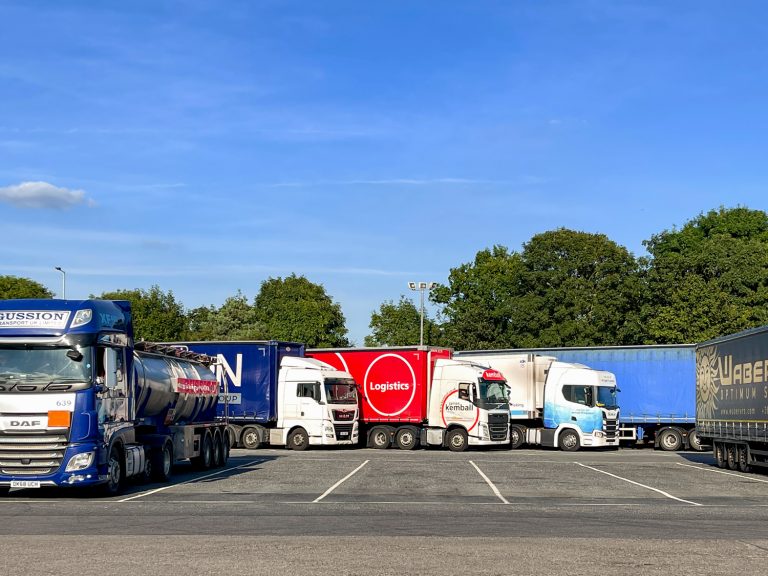
Date:
£100 million boost to improve HGV roadside facilities
Last year the shortage of HGV drivers forced the Government to issue temporary visas to experienced foreign drivers and also as a consequence retailers to poach drivers away from carriers and the more general logistics environment, to fill the gaps, amid fears of empty shelves before Christmas 2021.
Improved pay and conditions, and the clearing of a backlog of HGV driving tests, have boosted numbers of drivers, but there are concerns that a shortage of decent facilities will push workers to find jobs elsewhere, in more attractive roles and commercial sectors.
Logistics UK, the rebranded Road Haulage Association (RHA as was), believe that the lack of safe and secure roadside facilities for lorry drivers is a critical weakness for the industry and estimate that there is a shortage of 11,000 lorry parking spaces, which forces drivers to park in insecure lay-bys and industrial estates without access to food, toilets or showers and other amenities.
Many truckers say facilities on Britain’s roads are overpriced and in a poor state and is a significant factor in driving so many to leave the industry. Compared to mainland Europe, the UK’s facilities for drivers are years behind what is available on the continent to haulage and trucking company operatives.
MP’s acknowledge that facilities need to be improved, particularly if more women are to be attracted into the sector and essential if drivers are not just recruited but retained, which is why the government has announced a £100 million boost to improve HGV roadside facilities.
The funding aims to improve security measures for drivers, boost welfare facilities like showers, rest areas and restaurants, and increase HGV parking capacity where possible.
Truck-stop and road service operators can bid for a share of the £32.5 million match-funding pot. This is in addition to the £20 million match-funding launched earlier this year from National Highways to improve roadside facilities and security for lorry drivers and their cargo.
The Unite union which has been campaigning for better facilities for truckers, said most of the promised funding will not be allocated let alone spent until 2025.
Logistics UK said that a swift resolution is needed to ensure that the shortfall of lorry parking and facilities can be constructed and opened so that drivers have access to the hygiene and rest facilities enjoyed by workers in other sectors of the UK economy.
The move is part of the government’s ’33 actions’, unveiled in the summer, to address the shortage of HGV drivers and boost recruitment and retention of this essential sector, in the movement of goods domestically and internationally.
The 33 actions include making 11,000 HGV driver training places available through Skills Bootcamps, boosting the number of HGV driver tests, and launching our Future of Freight plan to encourage millions of people to make a career in logistics.
As a result, new HGV drivers are taking and passing their driving test in record numbers, with 29,384 HGV tests conducted in one 90 day period – 54% more than the corresponding period in 2019 before the pandemic.
The government’s funding scheme draws on ‘The National Survey on Lorry Parking: Part One’ which provides important evidence as to what improvements are needed and where to boost the nation’s roadside infrastructure.
Logistics UK said that the government’s survey confirmed that England’s commercial drivers are woefully under-catered for when it comes to accessing safe and secure overnight parking areas. This has been an issue for too long and is preventing the industry from recruiting and retaining the skilled workforce that it needs. The government’s stated objective to improve the situation is welcome, but industry now deserves action, so that more parking facilities are developed, at pace, where they are most needed.
We work with selected long-term transport partners, at strategic locations across the UK, to give us access to the widest pool of equipment and driver resource. Including rail operators and coastal feeder platforms to regional ports.
To learn more, or to discuss your situation and options, please contact Simon Balfe, who leads our transport operations throughout the UK, Europe and as part of any global movement across the road, rail and coastal feeder services that we deliver.
